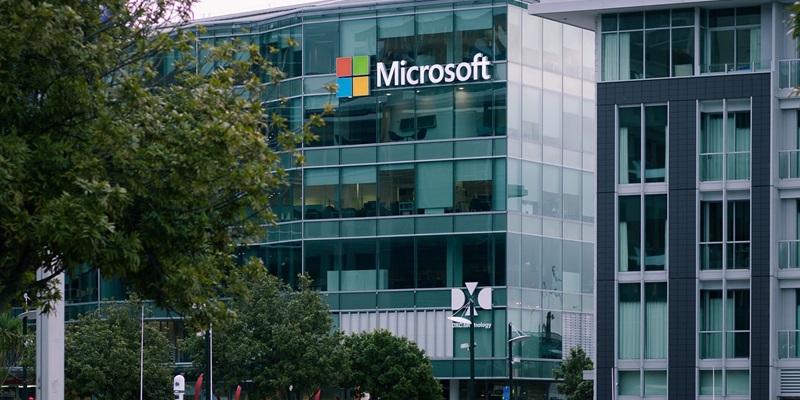In an effort to sidestep lengthy examination by European Union antitrust regulators, Microsoft has entered into negotiations with CISPE, the European trade body that represents cloud service providers. These talks are pivotal as they hold off the possibility of severe outcomes for the tech giant. Microsoft could face substantial fines, which may be accompanied by obligatory alterations to their business operations. The company’s stance has notably softened compared to its previous defiant history with EU regulators. By engaging in constructive dialogue with CISPE, Microsoft adopts a more conciliatory approach, illustrating its evolved strategy towards European regulatory compliance.
The discussions aim to dismantle the looming antitrust cloud that could dampen Microsoft’s business in Europe. The anticipation of a protracted antitrust investigation exerts pressure on the corporate behemoth to be more accommodating. A failure to reach an amicable resolution might not only translate into substantial financial penalties for Microsoft but also force it to implement fundamental changes in how they license their cloud computing products, potentially reshaping the industry’s competitive landscape.
The Origins of the Antitrust Cloud Complaint
CISPE, uniting big names like Amazon with smaller European cloud firms, has challenged Microsoft’s new contracts implemented on October 1st, fearing they may suppress the EU cloud market. This stems from a 2022 dispute when Microsoft revised licensing terms after European rivals complained. Still, similar adjustments by other tech giants, like Google and Alibaba, weren’t addressed, keeping competitive concerns alive.
The contention focuses on what CISPE claims to be ‘unfair software licensing’ by Microsoft. They allege these terms are structured to not only disadvantage EU cloud providers but also their customers, thereby threatening a diverse and vibrant European digital economy. In a fiercely competitive cloud services industry, CISPE’s complaint spotlights the crucial need for equitable market conditions to ensure the sector’s growth and fairness.
Implications for the European Cloud Computing Ecosystem
The allegations of unfair software licensing have significant ramifications for the cloud computing industry in Europe. CISPE condemns these practices, insisting they harm the competitive landscape by putting European cloud infrastructure providers and their customers at a disadvantage. It is alleged that Microsoft’s licensing terms restrict the potential growth of European cloud businesses by imposing constraints that do not apply to their own cloud services, consequently strengthening their dominance in the market.
Microsoft’s actions, as outlined by CISPE, are seen as a direct challenge to the principles of competition that underpin the European market. By tipping the balance in their favor, Microsoft is cited as not only shaping its competitive environment but potentially infringing upon the tenets of fair play. This has raised alarm among competitors, customers, and regulators alike, prompting urgent calls for an equitable restructuring of licensing practices in favor of a more balanced competitive field in the burgeoning cloud sector.
Microsoft’s Relationship with European Regulators
Microsoft has notably shifted its stance in dealing with EU regulators after incurring 1.6 billion euros in antitrust fines over a decade. These repercussions have spurred the tech giant to shift from defiance to compliance, actively working alongside European authorities to align with competition laws. Microsoft’s transformation underscores the importance of cooperation in the face of stringent regulatory landscapes to avoid hefty fines.
This strategic recalibration suggests a broader trend in the tech sector, as companies might prefer negotiation over litigation, setting a benchmark for adaptability in a regulated digital environment. Microsoft’s conciliatory approach may reduce immediate legal risks and could be beneficial for ensuring long-term viability and market success in Europe. The company’s acknowledgment of the weight of regulatory harmony embodies a proactive stance in today’s closely-monitored tech industry.
Current Status of the Negotiations
As we move further into 2024, Microsoft and the European cloud industry body CISPE are deep into negotiations over the former’s licensing practices. CISPE is adamant that changes must be made to create a fairer competitive landscape. Their focus is on dismantling what they regard as Microsoft’s restrictive measures, which are perceived to hamper competition within the European cloud market.
These talks are pivotal, with the potential to shape the European cloud sector’s trajectory. The outcome will have far-reaching consequences for the digital economy across Europe, making it crucial for both parties to find a mutually agreeable solution. As Microsoft and CISPE continue to deliberate, the European cloud industry watches on, eager for an agreement that fosters a balanced and competitive environment. The resolution of these discussions is awaited with great anticipation, highlighting their importance in setting the stage for future growth and innovation in cloud computing.

